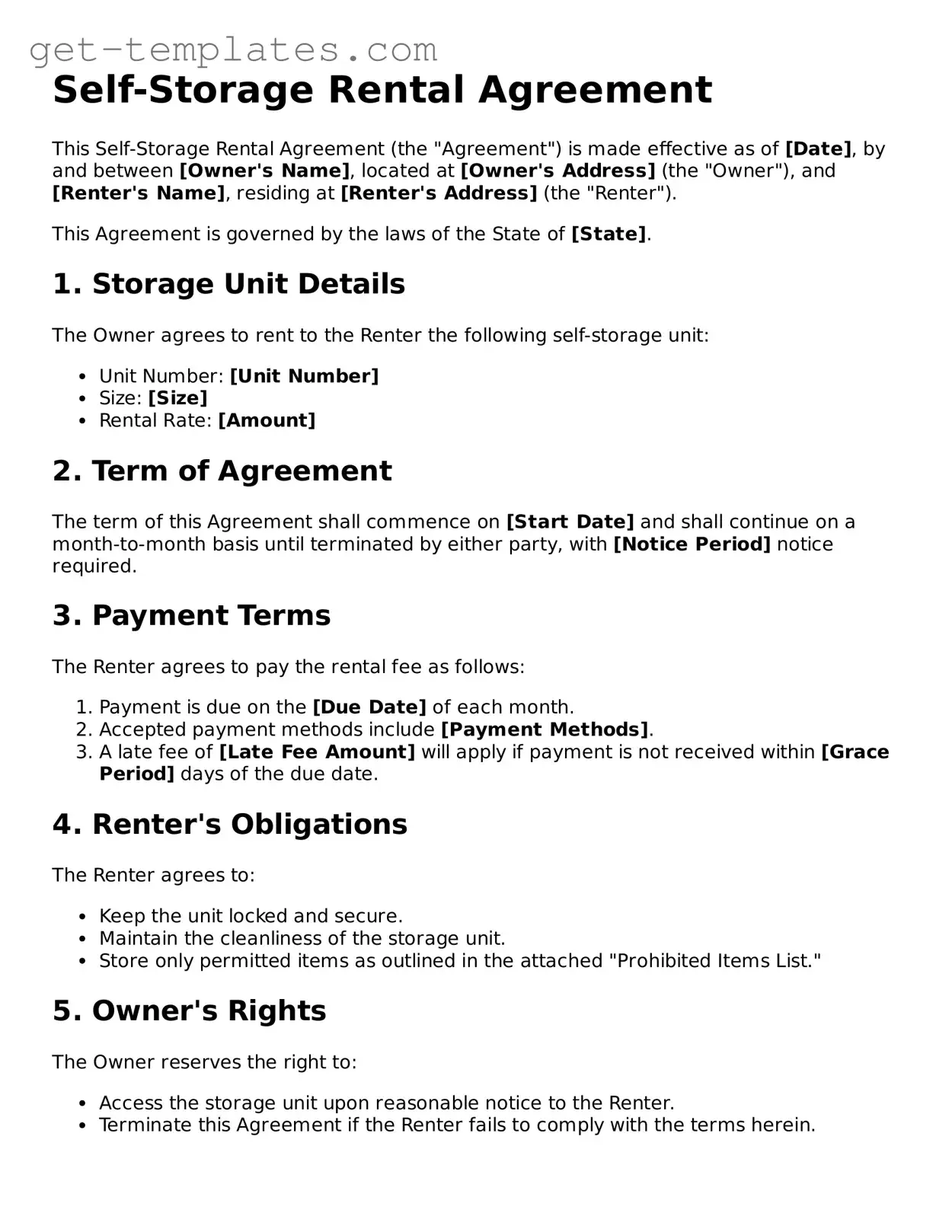Attorney-Approved Self-Storage Rental Agreement Form
The Self-Storage Rental Agreement form is a legal document that outlines the terms and conditions between a storage facility and a renter. This agreement helps protect both parties by clearly stating the responsibilities and rights involved in renting a storage unit. Understanding this form is essential for anyone looking to rent storage space, ensuring a smooth and transparent experience.
Get Document Online

Attorney-Approved Self-Storage Rental Agreement Form
Get Document Online
You’re halfway through — finish the form
Finish Self-Storage Rental Agreement online — edit, save, download made easy.
Get Document Online
or
⇓ PDF Form
